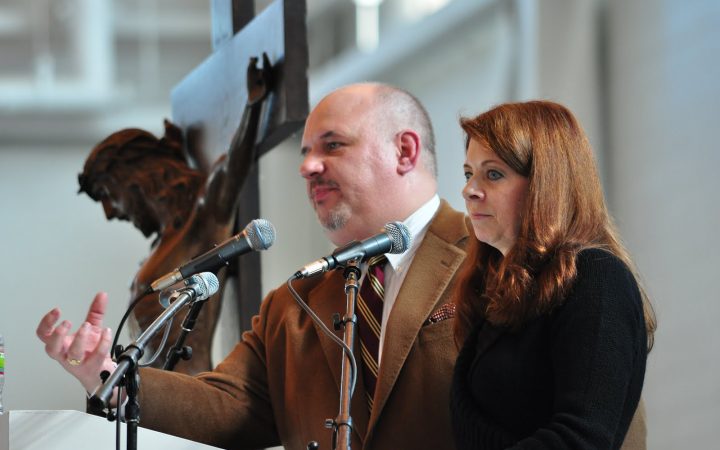Are you getting the help you need?

5 Ways Seeking Help Can Make Things Worse
-
” I read books that told me to love more and give more… but they just made things worse.”
Inspirational, quasi-advice type books written by well-meaning people who have gone through the normal ups and downs of married life are often of little use to couples struggling with serious problems.
Moreover, these can actually make a struggling marriage worse because they typically ask readers to adopt an even more vulnerable posture (love more, give more, be more patient and understanding). If a marriage is challenged, and especially if there is any kind of abuse, adopting such a posture will create an increasingly toxic environment.
It is important to seek out self-help resources (books, programs) developed by professional marriage counsellors who are trained to offer strategies for handling complicated relationship problems. -
“My spouse doesn’t want to go to counselling.”
Studies show that couples tend to wait four to six years from the onset of problems to the time they begin to seek professional help. On top of this, if one’s spouse is abusive, emotionally or otherwise, there is even less of a motivation for the offending spouse to want to seek help even if they say they would like to stop. Why? Because, sadly, the marriage actually works for them. The angry, emotionally manipulative, or abusive spouse has all kinds of strategies for getting what he or she wants out of the relationship.
Make the appointment anyway. Most spouses will come along if for no other reason than they want to make sure the therapist gets their side of the story. But a therapist trained in one-person marital therapy can still help you make huge improvements in your marriage even working on your own.
The key is to make sure your counsellor has had specific training and supervision in marital therapy. Trained marital therapists have success rates over 90 percent. Systems Theory and Gottman Relationship Therapy are two of the most successful, empirically-validated approaches to marital therapy. -
“We went to a couple of sessions, but it didn’t do anything.”
Going to therapy doesn’t guarantee success but there are a few common reasons a couples’ attempts at therapy don’t work.
The first is that the couple may be seeking help from a therapist who is doing marital counselling without proper training.
Second, research shows that serious marital problems often require a commitment of at least 12-24 sessions.
Third, couples often become demoralised when one spouse seems to be undermining the process by constantly complaining about the expense, not doing t he homework, or pouting about having to go. Usually, this behaviour will stop in a few weeks once the offending spouse realises that it won’t stop their mate from making the next appointment. Otherwise, a shift to One-Person Marital Therapy can make all the difference as that solo-spouse begins to learn ways to set effective boundaries that spoil the games the offending spouse is playing.
he homework, or pouting about having to go. Usually, this behaviour will stop in a few weeks once the offending spouse realises that it won’t stop their mate from making the next appointment. Otherwise, a shift to One-Person Marital Therapy can make all the difference as that solo-spouse begins to learn ways to set effective boundaries that spoil the games the offending spouse is playing.
The bottom line – make sure you are working with a trained marital therapist, then stick with it even if your spouse resists. -
“Counselling was too expensive.”
Unfortunately, medical treatment, including psychological help, is expensive. The good news is, most insurers do have some mental health benefit and you should take advantage of it when possible. But even if you don’t have good health insurance, as of 2013, the average divorce costs between $15,000-$20,000 plus a lifetime of hassle negotiating childcare, support, house rules, etc. By contrast, an entire year’s worth of marital therapy (should you even need that much) would cost about $5,000-$6,000. That’s not cheap, but it is up to 75 percent less expensive than the alternative on the high end of both duration and cost.
-
“I went to spiritual direction/counselling with my pastor.”
There is a HUGE difference between spiritual direction and counselling. Simply put, a spiritual director’s job is to help you find God in the situation you find yourself in whatever it is, while a therapist’s job is to help you change your situation. Spiritual direction, in short, is really not about changing anything so much as it is about being able to understand how God is relating to you through your present circumstances.
A woman in an abusive relationship might experience her spiritual director telling her to “join her sufferings to the cross of Christ” while her therapist is telling her to “stand up to your husband and set boundaries.” This is not conflicting advice. It is complementary. Someone who is experiencing a spouse’s cruelty needs to be able to both change their situation and experience God’s love in their present trials.
Know that regardless of your situation, competent help is available to you. Don’t be afraid to seek it out and don’t be afraid to commit to it when you find it. I pray that God will lead you to the healing you seek.
This is an abridged version of Dr Popcak’s article. For the complete version visit his blog, ‘Faith on the Couch’
Dr Greg Popcak is a therapist, radio host, author and the director of the Pastoral Solutions Institute, through which he and his staff provide Catholic counselling by telephone to clients around the world. He also teaches college courses in both counselling and spiritual direction. He is the devoted husband to Lisa and they have three children.

